Steph Smith manages acquisitions, operations, and finances at Industrial Partners Group. Combining 15 years of real estate development experience with a passion for the environment, Steph pushes IPG projects forward with green building, solar, water reclamation systems. Steph is an advocate for cannabis regulation and has worked to make IPG one of the largest cannabis landlords in California. She is also passionate about women and children’s issues and is a member of the Pacific Palisades Woman’s Club and is on the Policy Committee of EveryChild Foundation. She is a mother of five and active fundraiser for several child focused foundations. She has a BS in business from Boston College and attended UCLA’s Anderson MBA program.
Thank you so much for doing this with us! Can you tell us the “backstory” about what brought you to the cannabis industry?
Although I’ve been called a “Cannabis Queenpin,” I don’t necessarily consider myself in the cannabis industry. As a real estate developer and investor, I am cannabis adjacent. In 2007 I was browsing online real estate listings saw a former pawn shop for sale in Central Los Angeles. The price was right and I bought the building sight unseen. A friend asked to grow medical marijuana in the building and I agreed. I’ve always believed cannabis should be legal and I wanted to support this grower. After the grower moved out, I posted some photos of the empty building on Craigslist thinking someone would turn the building into a laundry mat or hair salon because it had heavy electrical and water service. Within hours I had a bidding war between cannabis growers and I leased the building for nearly 3 times the asking price. I mistakenly thought I knew the only person growing cannabis in Los Angeles! I quickly learned that there was an underserved niche market and I set out to supply the industry with high quality properties. Today I’m among the largest landlords to the cannabis industry in California.
Can you share the most interesting story that happened to you since you began leading your company? Can you tell us what lesson you learned from that?
In 2016 I began working to change local land use laws for cannabis on behalf of my tenants. I hired a government relations attorney and an election consultant firm and I began to lobby local governments for my tenants. I quickly discovered that zoning and permitting process in certain cities – and the police themselves – were outright corrupt so I decided to change the government by supporting new candidates. I began calling out the police for illegally harassing the cannabis industry. In December of 2017, the same police I had publicly called out for corruption raided by home with a SWAT team and 30 officers armed with assault weapons, nearly shooting my then 2 year old daughter in my arms. The police issued false press releases calling me a drug lord even though they knew I was only a landlord. Their goal was to terrorize me so I’d back off. But I didn’t back down and so they raided by house a second time the following year. Instead of cowering, I sued the city for corruption and hired a private investigator, eventually turning over evidence to the FBI and leading to the firing of the chief of police and the city manager.
What’s the lesson to be learned? Power concedes nothing without a fight. I didn’t get into real estate because I like public drama but at some point each of us will be called on to take a stand. I’m proud of where I stood and what I am fighting for.
Can you share a story about the funniest mistake you made when you were first starting? Can you tell us what lesson you learned from that?
When I first started leasing to the cannabis industry in 2007 the laws were not as clear as they are today. Many people in the industry used “weed names” when doing business as a way to protect their real identity. For some reason Joey was a ridiculously common weed name which was so confusing! But I had a group of tenants with what I considered unique weed names. One day I was explaining weed names to an intern and I mentioned BReal, Wiz, Red, BusyBee and the intern freaked out. Turns out these guys didn’t have weed names. They had rap names and they were all super famous artists. The lesson is that it’s important to treat everyone equally because you we never really know who someone is, what they’ve been through, or who they might become.
Do you have a funny story about how someone you knew reacted when they first heard you were getting into the cannabis industry?
Most people found out I was in the cannabis industry when a fake story about me being a Cannabis Queenpin went viral. In real life, I’m a mother of 5 little kids and I run a real estate development firm serving many industries, including cannabis. But overnight news stations all over the country reported that I secretly ran a gigantic cannabis drug empire. Luckily, I live in West Los Angeles where almost everyone supports full legalization so the most common reaction I got was from mothers genuinely wondering how I managed to do drop offs, pick ups, and volunteer for fundraisers (in LA traffic!) while supposedly being an uber successful drug queenpin. The answer of course was that I’m absolutely not a drug lord! A producer from the Real Housewives reached out to see if I wanted to join their show and they were disappointed to learn I was actually pretty boring.
None of us are able to achieve success without some help along the way. Is there a particular person who you are grateful towards who helped get you to where you are? Can you share a story?
I owe much of my success to a guy I barely know named Mike. He was a friend of friends who was making a small fortune flipping houses in Arizona in 2003. I grew up poor and was briefly homeless, living in my car, so the entire idea of owning real estate was very foreign to me. I had never considered owning a home and didn’t even know how to buy one but one night I got seated next to Mike at a dinner party and I quickly realized that whatever he was doing I could do too. He was successful but he wasn’t particularly smart. I had never realized you could be the former without being the latter! Mike inspired me to buy and flip my first house. Within 3 years I purchased and sold close to 30 homes. Those homes gave me the confidence and knowledge to start my own real estate development firm.
Are you working on any new or exciting projects now? How do you think that will help people?
The successful regulation of cannabis has paved the way for psilocybin, also known as magic mushrooms. Psychedelics like psilocybin are certainly the new frontier and a lot of work has been done to successful decriminalize their use. I’m currently submitting a citizen’s initiative to regulate psilocybin in a City in Southern California. Cities like Denver and Oakland have decriminalized psilocybin use, but it remains illegal to grow or sell the mushrooms. Regulations like the one I’m proposing go a step further and give citizens, businesses and landlords protected rights. For me as a landlord, I’d like clear regulations that justly protect my tenant’s rights. By removing the gray areas, we remove opportunities for corrupt practices. Regulations like the one I’m adding to the 2020 ballot would allow for the legal cultivation and distribution of psilocybin mushrooms and derivatives in specific zones of a city. Psilocybin shows tremendous promise in studies with addicts, PTSD sufferers and those with depression and I’m excited to help bring about clear laws.
Despite great progress that has been made we still have a lot more work to do to achieve gender parity in this industry. According to this report in Entrepreneur, less than 25 percent of cannabis businesses are run by women. In your opinion or experience, what 3 things can be done by a)individuals b)companies and/or c) society to support greater gender parity moving forward?
Federal laws need to change before more women will readily engage in the cannabis industry. It’s easy to forget that cannabis is still a serious felony under federal law, punishable with years in prison. People are in federal prison for growing or distributing lawfully licensed cannabis right now. Any money earned is still subject to federal forfeiture, even if the money comes from a state licensed business. If you run a cannabis business and you buy a house or put money into your kid’s college fund and that money comes directly from a cannabis business, you’re at risk of losing everything. Until our federal laws change, I’m not convinced that women should risk so much for the industry.
That said, I believe cannabis will eventually be a women’s industry. Women make over 90% of all health care and wellness decisions and cannabis is a health and wellness product. Women should be at the helm of the majority of cannabis companies because cannabis is intertwined with health, wellness, justice, and compassion.
You are a “Cannabis Insider”. If you had to advise someone about 5 non intuitive things one should know to succeed in the cannabis industry, what would you say? Can you please give a story or an example for each.
The first rule in real estate is also the first rule in cannabis: location, location, location. If you’re living in an area without cannabis friendly laws or a clear path to licensure, you need to move or change the laws before you can move forward. It doesn’t matter if you’ve got a genius idea or a better way to execute, if you don’t have a legal framework – or your local government is trying to tax cannabis to death – you need to either break up with your dream or with your city.
Second, you’re not late to the game. The legal cannabis industry is just getting started. There is certainly a perception that a lot of the industry has been mapped out and large groups have captured market share, but that’s not the case. Everything from how cannabis is grown to how humans consume the product is going to look radically different in a few years. Today I lease more space to greenhouses than I do to indoor warehouse growers. A decade ago the idea that acres of cannabis could grow in a greenhouse along the freeway was unimaginable.
Third, there is no easy money in cannabis. Success comes down to serving your customers, acting with integrity, and executing professionally. Ten years ago even stoners were making easy money but those days are gone. There is still unlimited potential, but you’ve got to be a professional to succeed.
Fourth, even if you’re passionate about cannabis and have a great idea, this may not be the right industry for you. Federal law reigns supreme and it’s supremely anti-cannabis. Without access to banking and without support from federal law, you may not want to risk involvement with this industry yet. I’ve had nearly 50 bank accounts closed and I’ve fought off foreclosures on properties that are unrelated to cannabis simply because I lease buildings to cannabis tenants. There are real world consequences and risks to being involved with cannabis that you might find unacceptable.
Fifth, even if you don’t consume cannabis you can still run a successful cannabis company. Your passion for your business doesn’t need to be a passion for using the product; it needs to be a passion for serving your customers. With 5 small children and a firm to run, I don’t use cannabis as much as I’d like because I’m busy managing and developing properties. My success isn’t because I use a lot of cannabis. My success is because I love supporting my tenants.
Can you share 3 things that most excite you about the cannabis industry?
Working with people who’ve put their lives on the line for decades to bring cannabis the status it has today is beyond exciting. It wasn’t politicians who changed the laws, it was people who fought and suffered – sometimes losing their lives or their children – for our rights. These cannabis heroes aren’t just in history books, they are alive today so call them up and treat them to lunch!
Cannabis is often called a magic plant. I think one of its most remarkable powers has been the ability to expose corruption and hypocrisy. The cannabis industry has exposed corrupt practices in every city and county and it’s proven that the real “outlaws” are often the government and the authorities failing to follow the law or trying to extort those that want just laws enacted. I’ve sued 4 different cities in California to get them to follow the law and knowing that the law is finally on the right side feels great.
Helping support an emerging industry centered on compassion, freedom and wellness is good for the soul. I lease to a lot of different industries, including aerospace and big box stores like Walmart, and the cannabis industry is indeed special. Most people in cannabis are highly concerned about their customers, employees, and engaging positively with the public to help change long-held perceptions. It’s a refreshing break from other less innovative industries.
Can you share 3 things that most concern you about the industry? If you had the ability to implement 3 ways to reform or improve the industry, what would you suggest?
The number one thing of concern is that the cannabis industry is cash based due to banking restrictions. The industry literally has billions of dollars in cash transactions which is recklessly unsafe for everyone involved. The industry needs banking.
Second, police and local government corruption is rampant. In too many cities and counties the local officials and police are making the laws to benefit themselves and their cronies. Corruption is enabled by the cash nature of the industry and because of ridiculous federal laws. Corruption erodes opportunity, derails entrepreneurs, and diminishes respect for government and police. Cannabis needs clear and transparent federal and state laws.
Thirdly, until the first and second things are fixed the industry can’t evolve to the next level.
What are your thoughts about federal legalization of cannabis? If you could speak to your Senator, what would be your most persuasive argument regarding why they should or should not pursue federal legalization?
Senator Ted Lieu and I speak on the phone regularly about everything from cannabis to the summer camp his kids are going to. Ted is one of my personal heroes and I’m grateful that he represents my district and honored to support him. I’m so proud of the work Ted is doing to fight corruption in this administration. Senator Lieu is a strong and outspoken advocate for legalization of cannabis and normalization of banking regulations. Talking to Ted about cannabis legalization is preaching to the choir.
Today, cigarettes are legal, but they are heavily regulated, highly taxed, and they are somewhat socially marginalized. Would you like cannabis to have a similar status to cigarettes or different? Can you explain?
Cannabis and tobacco differ substantially. I’d argue that sugar and tobacco are more similar and should be regulated as such. Both sugar and tobacco are addictive substances that kill tens of thousands of people a year. A case cannot be made that cannabis is in that same category. In fact, I’d argue that sugar and cigarettes are treated too laxly considering their adverse effects on health and society. Cannabis should certainly be highly regulated because consumer safety is important and we don’t want adults using unsafe products. We also need to fund serious cannabis research and take a look at some of the new high potency products because they may need additional regulations that the dried flower does not.
I don’t believe cannabis should be highly taxed for a number of reasons, including that it is a preferable recreational drug to alcohol, high taxes create a black market, and those using the cannabis medicinally are disproportionately impacted by a tax not levied on prescription drugs. Should cannabis use be socially marginalized? Absolutely not. Shaming people and discriminating against adults for using cannabis is not acceptable.
Can you please give us your favorite “Life Lesson Quote”? Can you share how that was relevant to you in your life?
A professor in college once mentioned that human lives are about 30,000 days, if we’re lucky. I was stunned by the number because it’s both large and small. My 30,000 day allotment is never far from my mind. It helps motivate me, but it’s also profoundly calming. The beauty of knowing that this day will pass and nothing is forever helps me embrace the goodness and bounty that’s all around me while letting the little stuff go.
You are a person of great influence. If you could inspire a movement that would bring the most amount of good to the greatest amount of people, what would that be? You never know what your idea can trigger. 🙂
Corruption is at the root of every important issue of our time. Climate change, health care, education, pollution from fossil fuels, gun violence, and the fight for living wages are all existential battles we face because of corruption. Before we see progress on any of these issues, we need to get corporate money out of politics. I’ve personally faced tremendous consequences because I refused to abide by a corrupt system and most leaders in cannabis have their corruption story, whether it be extortion, bribery or outright violence. I’m hopeful the tide is turning and we will begin to have a national conversation about corruption. As Americans, we are taught that corruption is what happens in other countries, but it’s happening here and it needs to be rooted out.

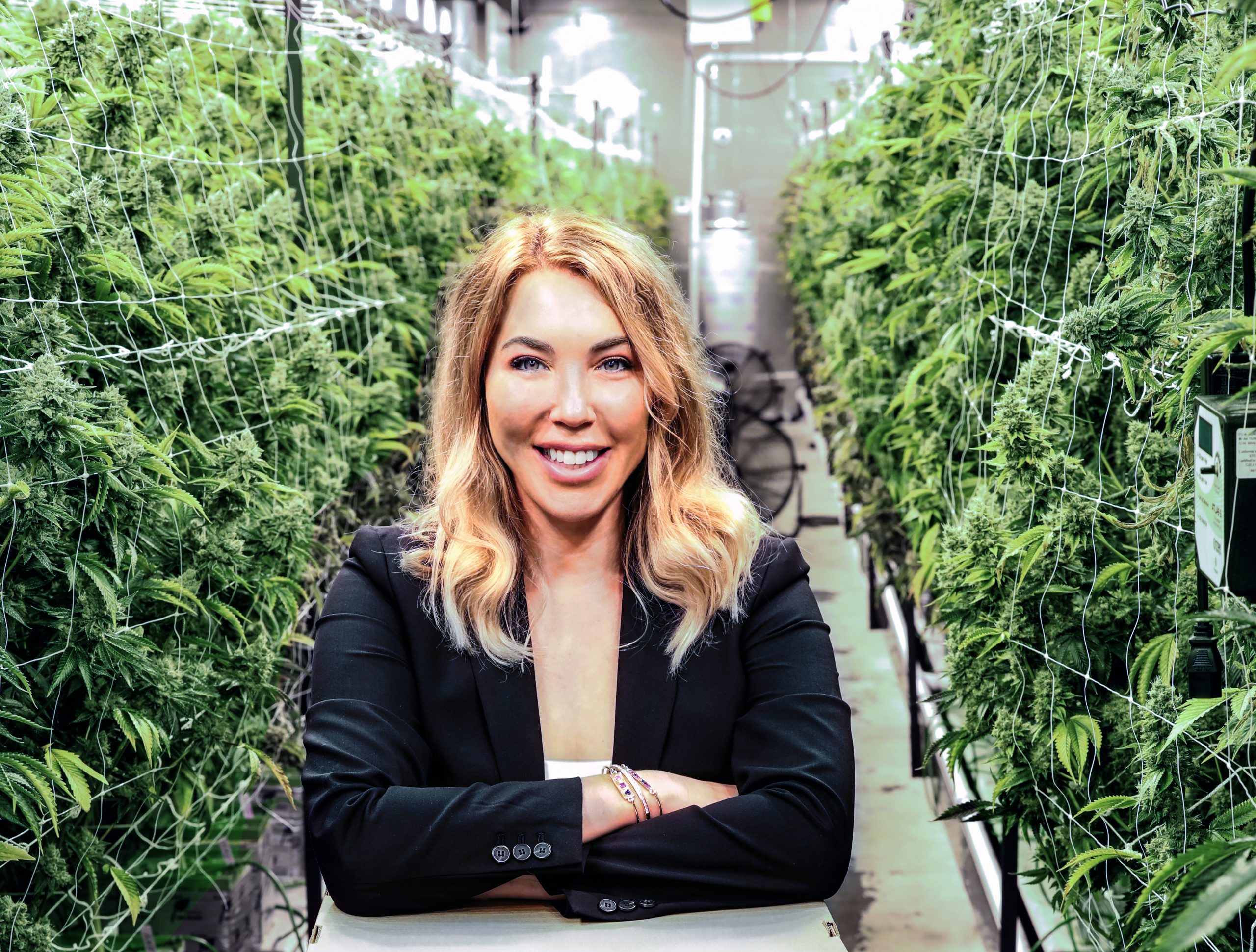
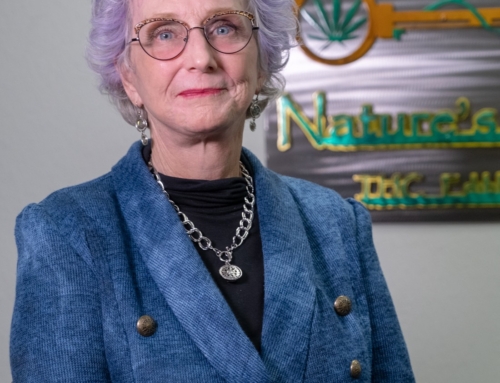
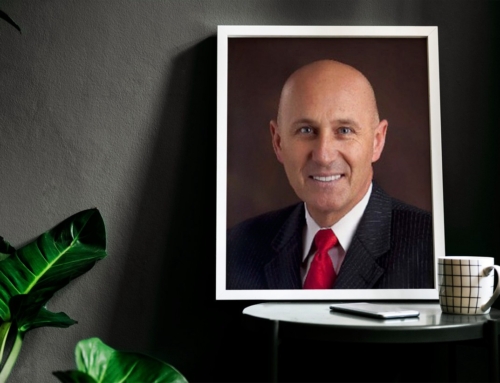
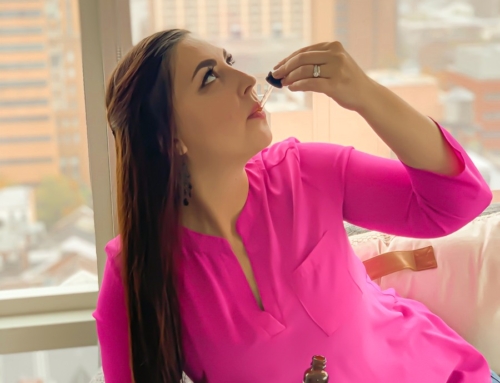

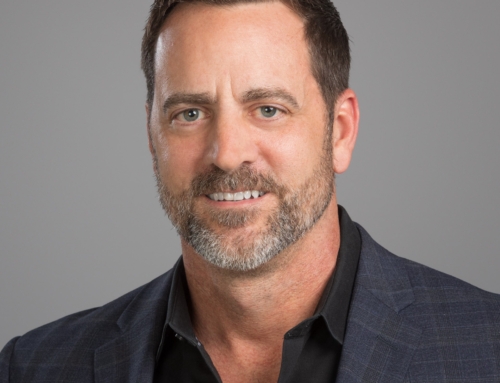
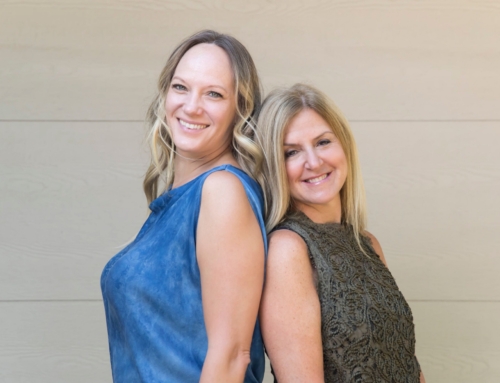
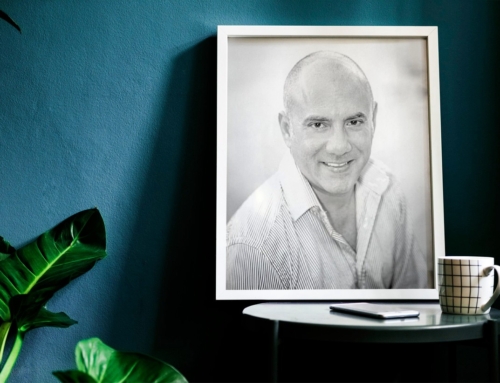
![“The potential to help people [in this industry] is enormous, but there’s still so much to learn.” – Ramon Alarcon, Witi](https://lakesideremedy.com/wp-content/uploads/2020/12/1thj5ekUyxQ69iLz1JJyODg-scaled-e1607882756286-500x383.jpeg)
